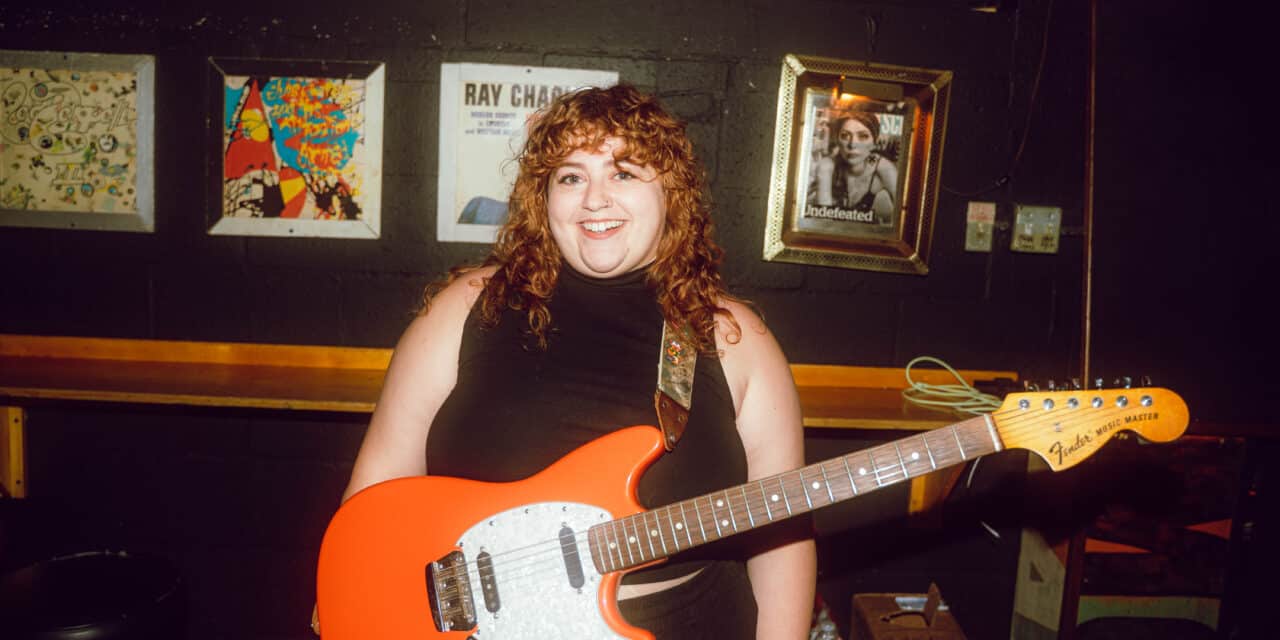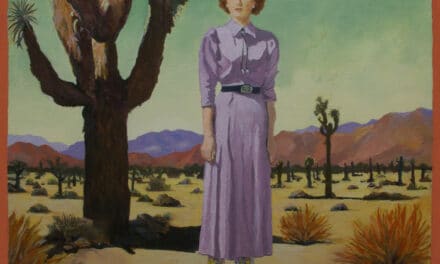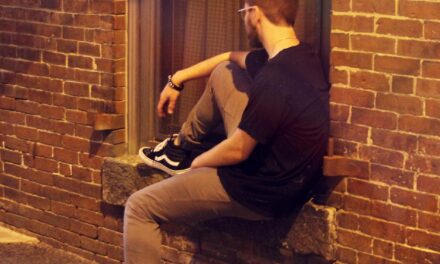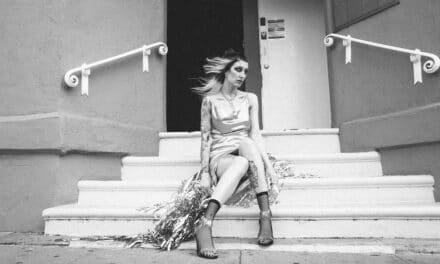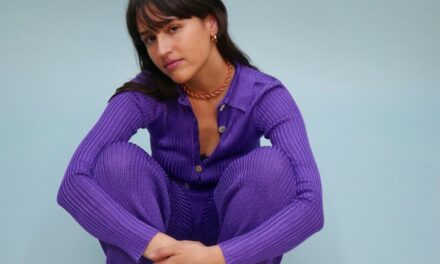Singer-songwriter Alyssa Joseph is no stranger to raw emotion. But on her newest single, “I Wanna Feel Good,” dropping May 30, the Nashville-based indie rock artist leans into the vulnerable middle ground between surviving and thriving. The track is a gritty, honest anthem about the mental gymnastics so many—especially women—perform just to appear “okay.”
“It’s a ‘fake it till you make it’ song,” says Joseph. “About manifesting what I want while navigating how hard it is to get there.”
“I Wanna Feel Good” marks the beginning of a new era for Joseph—one rooted in radical self-awareness and artistic confidence. Produced by Jared Corder of repeat, repeat, the track blends urgent guitar riffs with Joseph’s signature emotionally-charged vocals, channeling the introspective power of influences like Sharon Van Etten and Angie McMahon. It’s indie rock that hits where it hurts—and heals.
At its core, the song is a reflection on emotional labor, perfectionism, and the societal pressure to appear “fine,” even when you’re falling apart. It taps into a shared cultural truth: that being “put together” often masks deep internal struggle, and that striving for happiness can be a messy, nonlinear fight.
Originally from South Jersey and now rooted in Nashville, Joseph’s music has always carried the weight of lived experience. In addition to her personal music project, she’s built a community through her DIY music space, and is an advocate for veganism, mental health awareness, and creative authenticity.
With her upcoming EP on the horizon, “I Wanna Feel Good” is just the first step in a larger journey—one that promises to be as bold and honest as Joseph herself.
Your upcoming track “I Wanna Feel Good” seems to be an anthem for women navigating the pressure to appear composed despite internal struggles. Can you tell us more about what inspired this song and how it reflects your personal journey?
That’s a very cool interpretation of the song and definitely part of it for me. I wrote as an expression of the immense pressure I feel chasing this creative, unconventional path. Balancing wanting to be successful, have fun, and feel like a badass with the very real fears of is it possible to make this a sustainable career, what if I never get that big break, or what if the window on my dreams is closing. It’s that constant tug-of-war between hope/what I want to be feeling and fear/doubt creeping in.
You’ve described “I Wanna Feel Good” as a “fake it ‘til you make it” song. Can you expand on how this mindset influences both your music and your everyday life, especially in balancing the challenges of perfectionism and authenticity?
Honestly, I think true adulthood is realizing that no one knows what the hell they’re doing. We’re all just out here making it up as we go along – at least that is true for me, especially in my music career. So you just have to walk like you know where you’re going. And the truth is that you only figure out where that is once you’re halfway into the journey.
It’s a form of manifestation. I wrote “I wanna feel good” when I was feeling pretty not-good. Say it enough, sing it enough, and who knows what might happen. I think there is power in naming and vocally saying what you want.
With a background in indie rock and influences from artists like Sharon Van Etten and Angie McMahon, how do you blend those influences into your own sound? What aspects of those artists’ music resonate most with you?
As a listener, songwriting is everything to me. That’s what draws me to artists like Sharon van Etten and Angie McMahon – they are incredible songwriters with such emotive voices. I care about how a song makes you feel, and they are both masters at that. I’ve always tried to evoke emotion through my lyrics and melodies. Over the past year, I’ve been working with an incredible producer, Jared Corder at Polychrome Ranch, and it’s been such a cool experience expanding and learning how production and arrangement can also tap into that raw emotion too.
As a Jersey-grown, Nashville-based artist, your music spans across different musical landscapes. How has your move to Nashville shaped your music and your creative process?
Oof, yeah. I’ve definitely got that Northeastern fire (at least, that’s what the Southern folks say to me). I think growing up in Jersey gave me this blunt honesty and a deep value for direct communication. But Nashville is a songwriting town. Which introduced me to some nuance. It’s pushed me to grow as a writer, and I’ve loved expanding my skills, especially through co-writing. Also working with my producer here has been a game-changer for my sound and my process.
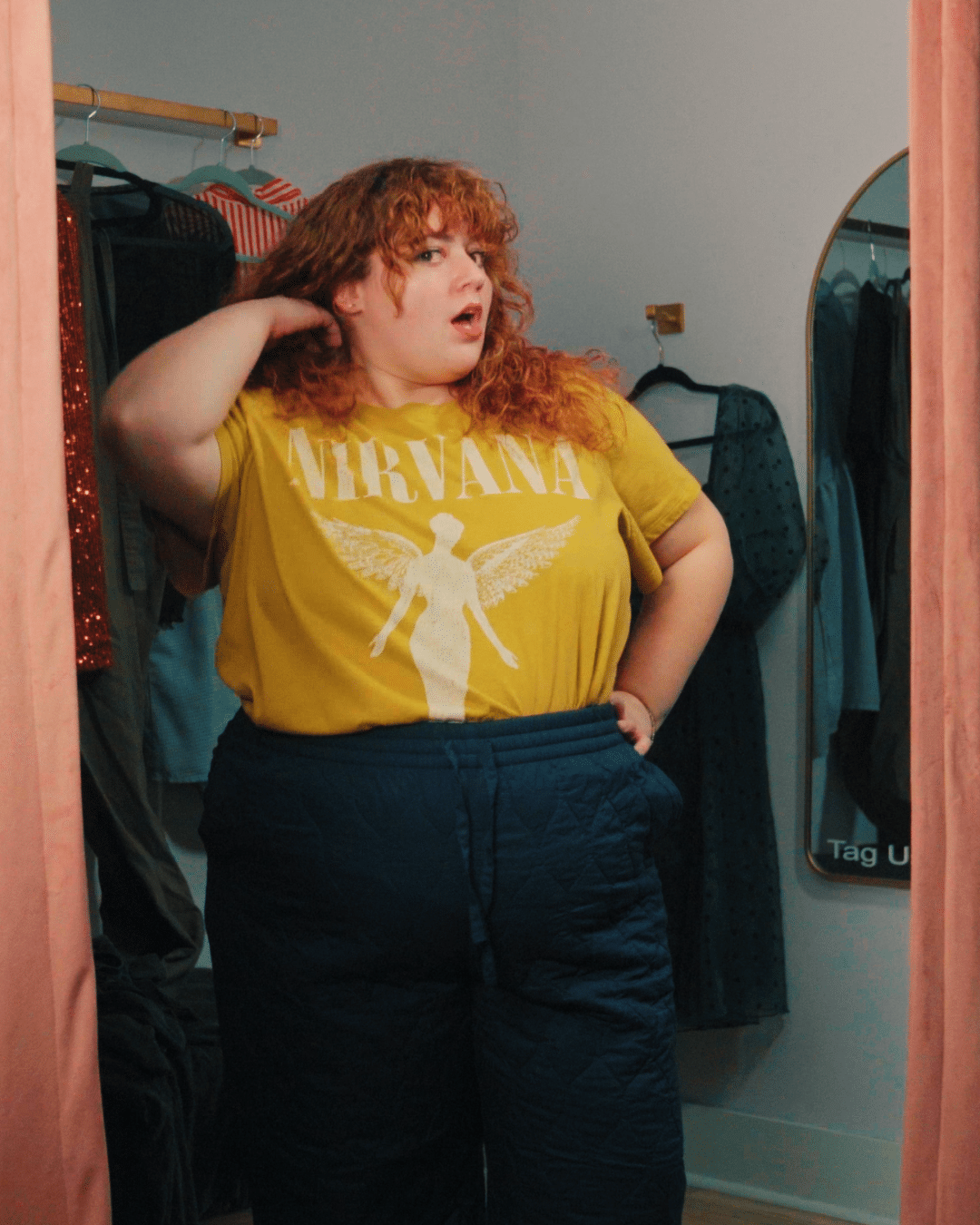
The song touches on the emotional labor often placed on women, which is a powerful theme. Do you feel like “I Wanna Feel Good” serves as a personal release for you, or is it more about amplifying a broader social conversation around these pressures?
I think the coolest thing about a song is that it doesn’t have just one meaning, and it can mean totally different things to different people. That was not my original intention in writing it, but that’s a really cool takeaway. Kin keeping, or the emotional labor women carry the burden of in relationships and households, is something that comes up a lot in conversations with friends, family, and in my own relationship. It’s important that we are engaging in dialogue around it. I’m glad there’s more awareness around it now, especially through platforms like social media and songs like Paris Paloma’s Labour. Nothing changes if we don’t talk about it, and I’d love for my music to be part of that broader conversation.
“I Wanna Feel Good” drops on May 30th, but it already sounds like it’s going to be a song that many listeners will connect with on a deep level. What kind of impact do you hope it has on your audience, especially women who might relate to the struggles you sing about?
I really appreciate that! I’m so excited for this song to be out in the world. I wrote it during a time when I was feeling really alone, and honestly, that’s the reason I share my music at all. We live in a world that prioritizes the highlight reel. That isn’t open or comfortable talking about our feelings and how hard things can really be. So when you’re struggling, it’s easy to feel isolated – I’ve definitely felt that way. So while writing a song is a way for me to process my feelings, sharing a song is my act of hope – that it will help someone when they need it most, so they know they’re not alone.
You’ve been praised for your authenticity. In what ways do you actively maintain that authenticity in a music industry that can often feel dominated by trends or expectations?
I have a rule that I don’t say things I don’t mean. I’ve got a tough exterior, but my core is very sensitive and sweet. My music is kind of the same way – that rock sound, with really vulnerable lyrics. I try to show up in spaces, whether in person or online, with that authenticity. I’m not going to do something unless it aligns with me.
You’ve mentioned your unconventional career path—what has that journey looked like, and how has it informed the way you approach both your music and your public persona?
I’ve just never been cut out for the 9 to 5. It has never felt like the path for me. We’re taught that it’s the only road to success, but I don’t think we were put here on this earth just to make money and live for the weekends.
They don’t teach you what unconventional paths look like. So I’m just out here figuring it out. And I’m flailing. And it’s messy. And I don’t have all the answers. I’ve done a bunch of odd jobs while trying to build something sustainable with my music. It’s a constant balancing act – trying to stay afloat financially without giving up the time and energy I need for my long-term goals.
Your music seems to focus on vulnerability and the emotional experiences of daily life. How do you decide which personal experiences to share through your songwriting, and how do you balance keeping things authentic while maintaining a sense of privacy?
Most of the time, I don’t really choose what the song is about – it just comes out. I do get to decide what I actually record and share. For me, it comes down to whether it’s a good song and if the message feels important to put out into the world. I’m naturally a pretty open person, and while I’ve learned to set boundaries, I still believe in sharing my experiences. If it helps someone else feel seen or less alone, then it’s worth it.
Looking forward, what’s next for you after “I Wanna Feel Good”? Are there any themes or collaborations you’re excited to explore as you continue to evolve as an artist?
We’ve got our single release show in Nashville on Friday, June 6th, which I’m so pumped about! After that, I’ve got more music to release – a whole EP’s worth of songs that I’m really proud of. A lot of it explores themes of grief and healing, and I’m excited to share work that feels meaningful and honest. I just want to keep creating music that matters, both to me and hopefully to the people listening. 🙂

